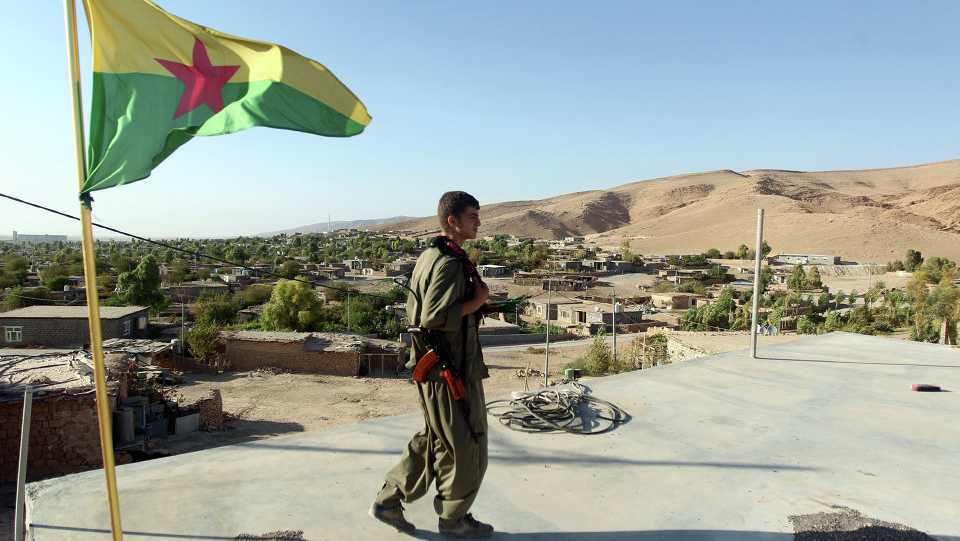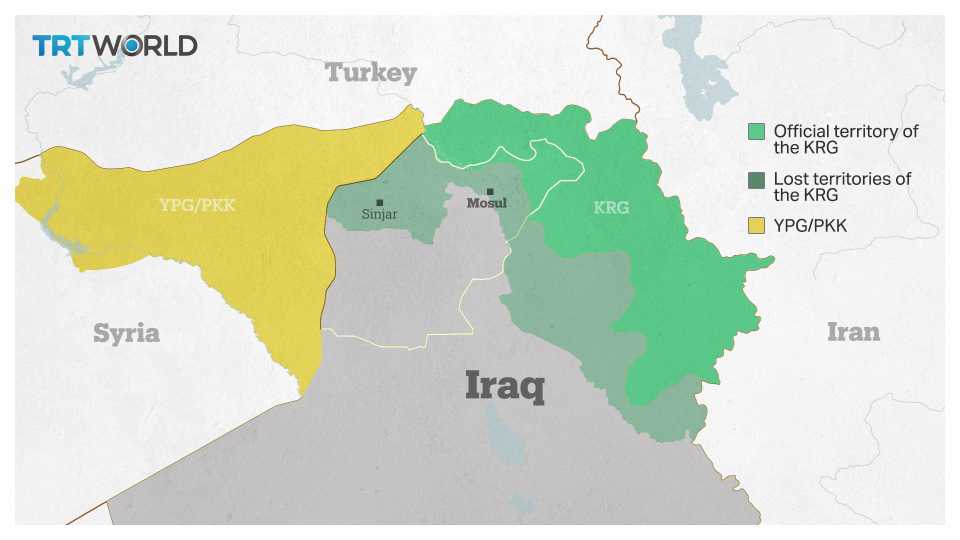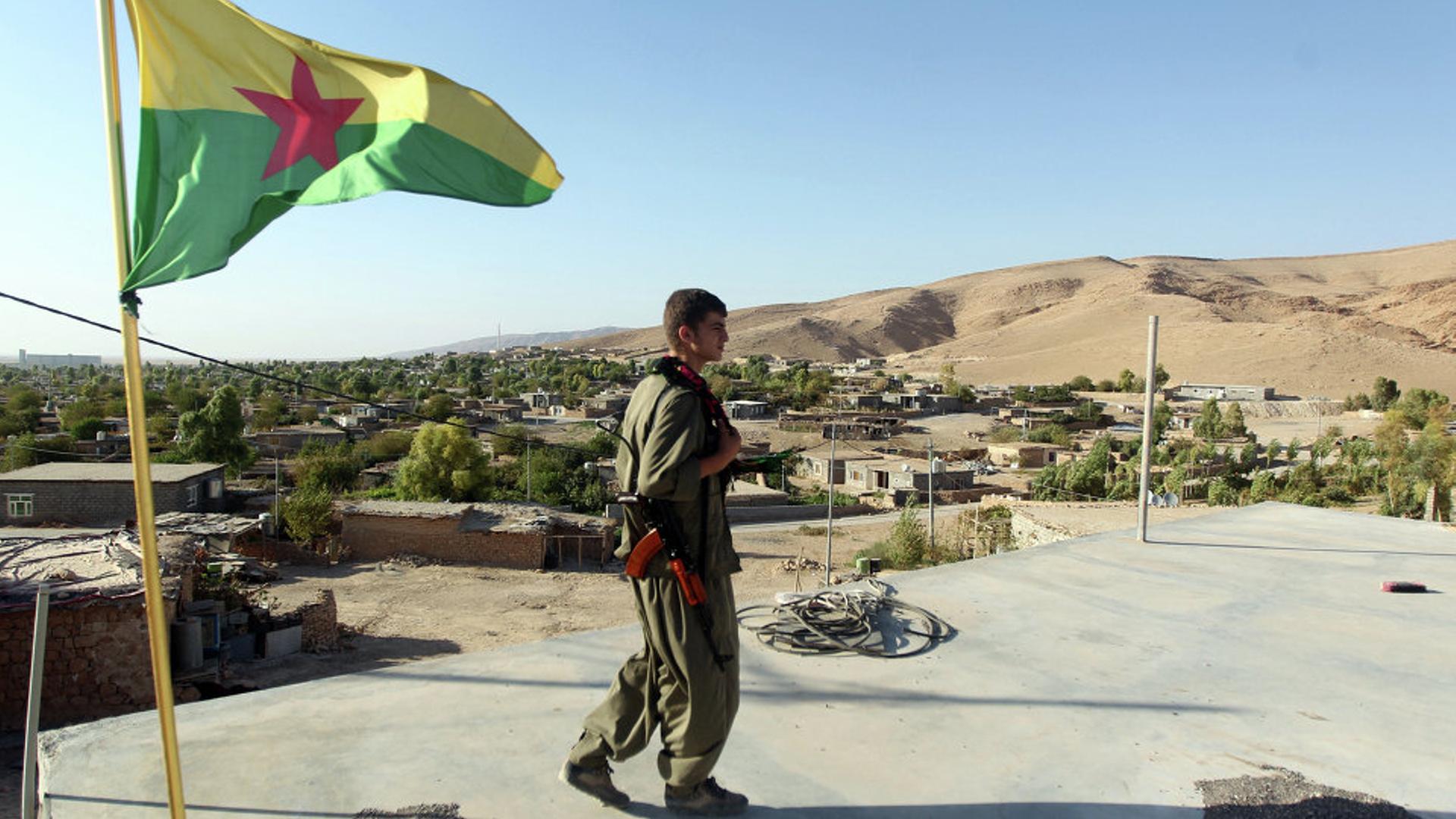
Turkey has long been discussing a military operation in Iraq’s Sinjar, in response Iraqi Foreign Minister Ibrahim al Jaafari on March 21 said Iraq rejected any military action on its soil by any neighbouring country.
Turkey discussed the possibility of a military operation because Sinjar is one of the bases of the PKK. The comments from Jaafari came after Turkey successfully finished another military operation on the PKK and its Syrian affiliate YPG in Syria’s Afrin.
He also said Baghdad was keen to maintain the depth of Iraqi-Turkish relations. And on March 23, reports came from Sinjar on PKK’s withdrawal.
Finally, Brigadier General Yahya Rasool, Iraqi military spokesperson, said on March 25 that the Iraqi troops were deployed to the Sinjar district.
Here’s five things to know about why Sinjar has been a point of debate:
1- Where is Sinjar?
Sinjar, also called Shingal in Kurdish, is both the name of a town and a district in Iraq.
The town is located some 50 km from Iraq’s border with Syria, around 100 km from the Turkish border and 120 km west of the city of Mosul, sitting on a geographically strategic position.
Sinjar and the surrounding areas belong to Ninevah governorate whose capital is Mosul, making it part of the disputed areas according to the 2005 Iraqi constitution.

2- What is the demographic structure?
The town of Sinjar is mostly inhabited by Yazidis, who are an ethnic-religious minority group, have the same ethnic roots with the Kurds and use a Kurdish dialect.
A smaller number of Arabs and an Assyrian minority are also residing in the town.
A 1943 royal decree led to the creation of Sinjar district, which later faced the former Iraqi leader Saddam Hussein’s Arabisation policy.
The disputed Sinjar district had come under control of the semi-autonomous Kurdish Regional Government (KRG) in northern Iraq after the fall of Saddam in 2003.
3- Why is PKK in Sinjar?
Sinjar had come under the control of Daesh, which captured Iraq’s second most populated city of Mosul during its sweeping summer campaign in northern Iraq in 2014.
In the summer of 2014, Daesh took control of the region and Yazidis faced a massacre by Daesh that lasted for months.
This massacre and the mass rape of Yazidi women by Daesh provoked worldwide outrage. Finally, the PKK in Iraq moved to Sinjar under the guise to protect them.
The PKK defeated Daesh in October 2014 in an offensive backed by US-led coalition air strikes.
International support for the PKK and lack of a central government presence gave the PKK and its affiliates a ground in the Sinjar district. Hundreds of Yazidi men joined the YPS, the Sinjar branch of the PKK and women joined YPJ female militia of the PKK.
Since then, Sinjar has been held by those groups, which creates problems between the KRG, Turkey and the central government in Baghdad.
KRG’s Peshmerga forces fought against the YPS and YPJ units in Sinjar in March 2017 to reclaim the area, but failed.
Iraqi government forces took control of the area in October 2017, in response to a non-binding independence referendum by the KRG on September 25, in addition to the other disputed areas which had been held by the Peshmerga.
Iraqi forces have since shared control of Sinjar district with the PKK-affiliated groups, in a largely peaceful but uneasy alliance.
Turkey has vehemently opposed any presence of the PKK in Sinjar because the group has been fighting the Turkish state for more than 30 years and has killed more than 40,000 people, including civilians. The PKK is designated as a terror group by Turkey, the US and the EU.
4- Why is Iraqi army conducting an operation in Sinjar?
The Baghdad government started to retake disputed areas from the KRG following the September referendum. KRG’s bid to independence angered neighbouring Turkey and Iran as well.
The Iraqi army first took back the oil-rich Kirkuk area from the KRG.
Despite the Iraqi army’s presence, PKK-affiliated groups continued to keep their presence and influence in Kirkuk and Sinjar.
Turkey has been pondering a joint military operation with the Iraqi army against PKK in Sinjar.
On March 19, when Turkey cleared Syria’s Afrin centre from the YPG/PKK, Erdogan said he had told the Iraqi authorities in Baghdad to deal with PKK camps in northern Iraq:
“If [Baghdad] cannot, we may turn up in Sinjar suddenly one night and clean up the PKK there.”
Starting a closer cooperation with Turkey against the non-binding independence referendum of the KRG, Baghdad said they wouldn’t let any attacks against Turkey be planned by the PKK on its soil. But at the same time, they weren’t eager for any joint military operation.
Nearly a week after Erdogan’s remarks, the PKK announced they withdrew from Sinjar to the Qandil Mountains, another stronghold of the PKK in northern Iraq, which lies in the KRG region.
On Saturday, Iraqi troops were deployed in the Sinjar district, where the PKK retreated.
Iraqi Prime Minister Haider al Abadi on Monday had a phone call with his Turkish counterpart Binali Yildirim.
Abadi promised Yildirim that there won’t be any attacks on Turkey from the Sinjar district.
5- Why is Sinjar a concern for Turkey?
President Recep Tayyip Erdogan said on Monday that Turkish intelligence chief Hakan Fidan would meet Iraqi officials on Tuesday to discuss the situation in Sinjar.
Turkey launched Operation Olive Branch on January 20, to clear Syria’s Afrin region of the YPG/PKK and Daesh, which Turkey considers a threat to its national security.
And Ankara said it’s determined to clear all its borders from the terror groups, as Iraq’s Sinjar is located about 100 km away from Turkey’s border.
“We hope that the Iraqi Central Government is on top of this operation in Sinjar,” said Erdogan.
“If there is an issue with achieving success in this [operation] then let’s hold our bilateral talks. We [Turkey] will take the necessary steps in Sinjar as well,” he added, signalling a possible operation to Sinjar if the Iraqi army fails to defeat the PKK.
The district has a strategic location as being a bridge between PKK and its Syrian extension YPG, with which the United States cooperates.
The US has been delivering weapons and ammunition to the YPG via northern Iraq, a move that led to tensions with Turkey.










Discussion about this post